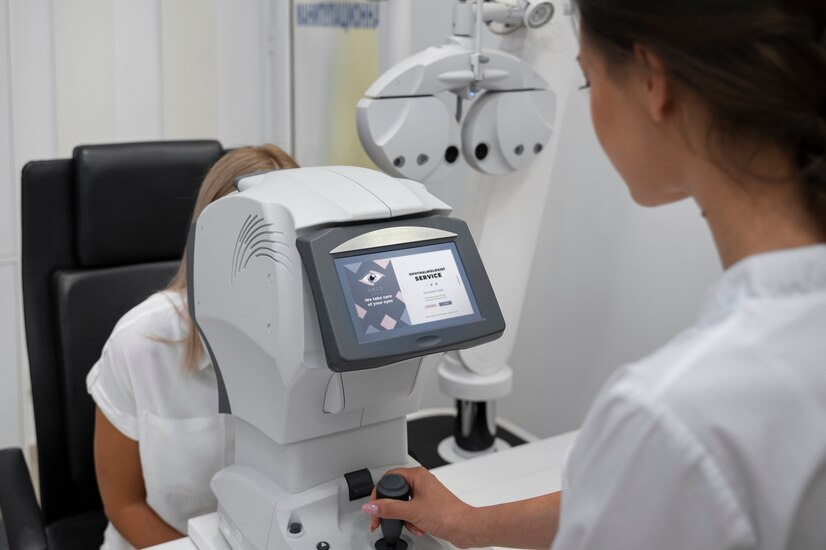OCT Clinic

Introduction
An OCT Clinic, specializing in Optical Coherence Tomography (OCT), is a specialized facility within ophthalmology dedicated to diagnosing and managing various retinal and optic nerve conditions. OCT is a non-invasive imaging technique that provides high-resolution cross-sectional images of the retina, optic nerve, and anterior segment of the eye.
Diagnostic Services
Optical Coherence Tomography (OCT)
OCT utilizes light waves to create detailed, three-dimensional images of ocular structures. It allows ophthalmologists to visualize the layers of the retina, assess retinal thickness, detect fluid accumulation, and identify structural abnormalities.
Comprehensive Eye Examination
In addition to OCT imaging, patients undergo a comprehensive eye examination, including visual acuity tests, intraocular pressure measurement, and dilated fundus examination. This evaluation helps assess overall ocular health and identify specific conditions requiring further investigation.
Applications of OCT
Retinal Diseases
OCT is instrumental in diagnosing and monitoring various retinal diseases, including age-related macular degeneration (AMD), diabetic retinopathy, and macular edema. It helps evaluate the extent of retinal damage, assess response to treatment, and guide disease management.
Glaucoma
In glaucoma management, OCT provides detailed images of the optic nerve head and retinal nerve fiber layer, aiding in the early detection of glaucomatous damage. It assists in monitoring disease progression and assessing the effectiveness of intraocular pressure-lowering therapies.
Therapeutic Services
Treatment Planning
Based on OCT findings, treatment plans are tailored to each patient’s specific condition. For retinal diseases, interventions such as intravitreal injections, laser therapy, or surgical procedures may be recommended, while glaucoma management may involve medications or surgical interventions.
Follow-Up Monitoring
Regular OCT imaging is essential for monitoring disease progression, assessing treatment response, and detecting recurrence of ocular conditions. Close follow-up allows for timely adjustments to the treatment plan, optimizing visual outcomes and preserving ocular health.
Patient Education and Support
Interpretation of Results
Patients receive detailed explanations of their OCT results, including visual representations of ocular structures and explanations of any abnormalities detected. This enhances understanding and fosters active participation in treatment decisions.
Counseling and Support
OCT Clinics provide counseling and support services to address patients’ concerns and alleviate anxiety associated with ocular conditions. Patient education materials and resources are also available to facilitate self-management and adherence to treatment plans.

